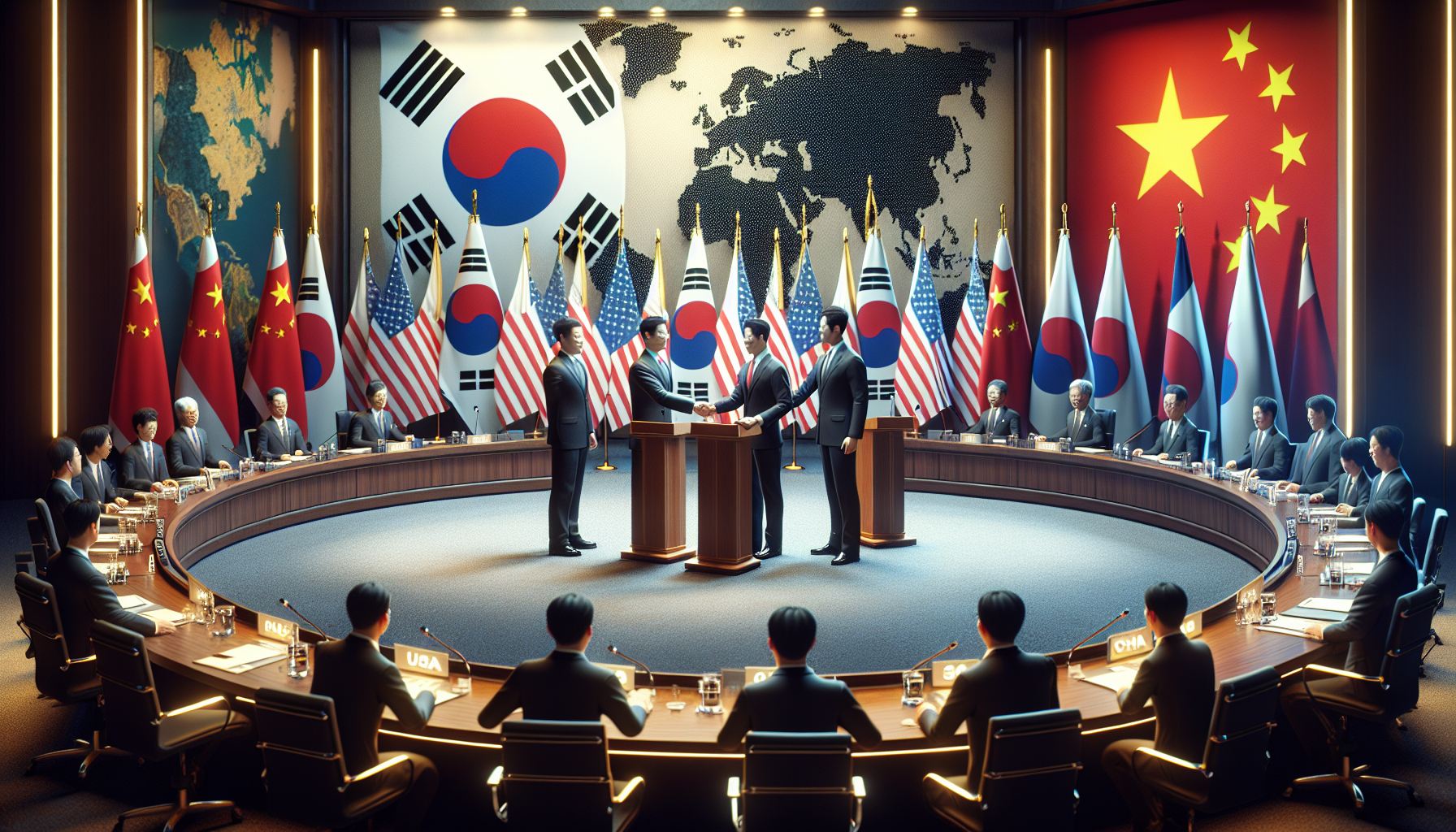South Korea is preparing to host the Asia-Pacific Economic Cooperation (APEC) summit amid simultaneous visits by U.S. President Donald Trump and Chinese President Xi Jinping. The summits will address trade negotiations, North Korea's nuclear issue, and China's structures in the West Sea. President Lee Jae Myung aims to strengthen the Korea-U.S. alliance and normalize Korea-China ties through these meetings.
President Lee Jae Myung's diplomatic schedule begins with his attendance at the Association of Southeast Asian Nations summit in Malaysia this week, culminating in the Asia-Pacific Economic Cooperation (APEC) summit in Gyeongju, North Gyeongsang Province. U.S. President Donald Trump will visit South Korea for two days starting Oct. 29, holding his second summit with Lee on that date. The agenda includes trade negotiations and revisions to the bilateral nuclear cooperation agreement, with the North Korean nuclear issue as a core security priority.
On Oct. 24 aboard Air Force One, Trump told reporters, "I consider North Korea a kind of nuclear power," while emphasizing his "personal and good relationship" with North Korean leader Kim Jong-un. He added, "If Kim Jong-un wants to meet, I'm open to it," hinting at a possible unannounced meeting during his visit. However, the official U.S. stance remains complete denuclearization of the Korean Peninsula, raising concerns that these remarks could lead to tacit recognition of North Korea's nuclear status. Kim declared at the Supreme People's Assembly last month that if "the United States abandons its obsession with denuclearization and accepts reality, there will be no reason we cannot face each other."
Meanwhile, Chinese President Xi Jinping is scheduled to visit South Korea on Nov. 1, his first in 11 years. The Trump-Xi meeting is set for Oct. 30 and is seen as a pivotal moment for the global trade war. In his meeting with Xi, Lee must address China's Shenlan 1 and Shenlan 2 structures installed in the Korea-China Provisional Measures Zone (PMZ) in the West Sea since 2018 and expanded from 2022. The 2001 Korea-China Fisheries Agreement prohibits fixed structures, but China claims they are "deep-sea aquaculture platforms" and has blocked access while declaring no-sail zones for military drills. The Ministry of Foreign Affairs noted that "China has explained the facilities have no military or sovereignty-related purpose" and found it "difficult to definitively determine" a violation, while the Navy chief stated China "is not complying with international law."
The Korea-U.S. trade package involves Seoul's proposed $350 billion investment in the U.S. in exchange for tariff cuts, particularly on South Korean automobiles, with unresolved issues on the cash ratio and funding duration. As APEC chair, South Korea aims to bridge U.S.-China differences and promote a free trade declaration upholding multilateralism. This diplomatic "super week" tests Lee's pragmatic, national interest-focused diplomacy for regional stability and prosperity.

